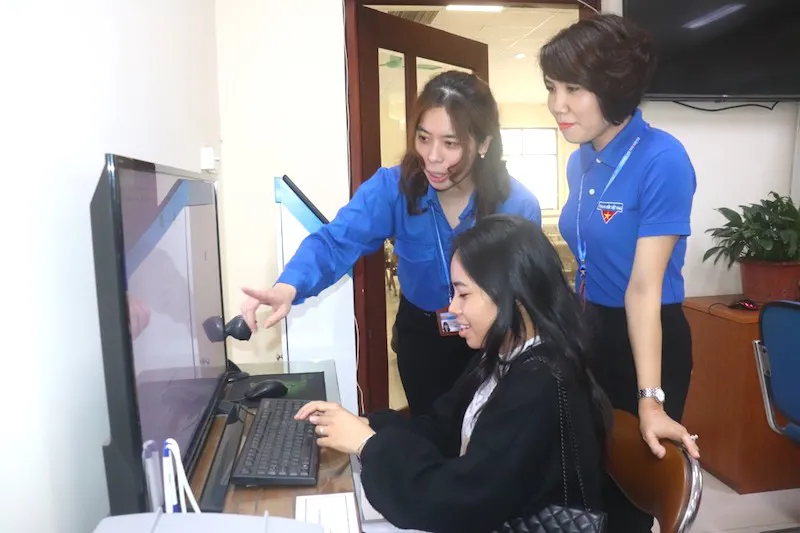Online payments for public services soar
It's reported that the method of paying for online public services through mobile money accounts will be expanded to increase convenience, simplicity and speed.
The inclination toward online payment for public services is steadily increasing in Vietnam, according to the National Payment Corporation of Vietnam (Napas).
| Hanoi waives fees for online public services until 2025. Photo: Thuy Linh |
A Napas report shows that in the first quarter of 2024, the number of public service payments processed online increased by 153% and the transaction value increased by 129% compared to the same period last year.
In 2023, these figures increased by 540% in terms of transaction volume and 149% in terms of transaction value compared to 2022. The payment method for online public services through mobile money accounts will be expanded to increase convenience, simplicity and speed.
To process payments on the National Public Service Portal (dichvucong.gov.vn), the company completed the integration of online payment infrastructure for 63 localities and 21 ministries, departments and public service providers.
Citizens can pay online for various services, including taxes, land and property registration fees, traffic fines, court costs, voluntary family health insurance and social security premium payments, and individual tax returns and payments.
Napas actively uses the National Public Service Portal and the VNeID app (developed and managed by the Ministry of Public Security), the two online payment channels for public services, to promote Stage 4 online public service payments for citizens.
Napas continues to work with the Ministry of Public Security and relevant units to implement online payment of fees/charges for public services through the VNeID application.
Recently, the Ministry of Public Security piloted online payment of criminal record certificate fees for citizens in Hanoi and Hue City. People can pay with NAPAS cards from 44 banks/financial companies, through bank accounts from seven banks, or with the VietQR code through applications from 37 other banks.
Nguyen Quang Minh, CEO of Napas, said that working with the Government Office, the Ministry of Public Security and related departments to build the payment infrastructure for online public services on the National Public Service Portal and the VNeID application is one of its important tasks.
The introduction of modern, fast and secure online payment options for public services for individuals and businesses has been accelerated thanks to the network of payment infrastructure and resources that are readily available, Minh added.
The CEO hopes that the pilot results will serve as a basis for expanding online payment for more public services. This is in line with the government's goals for national digital transformation and the development of the digital economy, society and digital citizens.
Hanoi will issue Judicial Record Certificates via the VNeID application free of charge for citizens from June 1, according to the capital People’s Council issued Resolution No. 11/2024 stipulating support for fees related to providing judicial record information via the VNeID application within the city. Viet Nam News reported that during the pilot period, between April 22 and May 29, the city's Justice Department received 5,235 applications and dealt with 2,961 applications via the VNeID application. Issuance of Criminal Record Certificates via the VNeID application is eligible for Vietnamese citizens with level-2 electronic identity accounts. Criminal Record Certificates issued electronically via the VNeID application have legal validity equivalent to the original paper Criminal Record Certificate. VNeID is a mobile phone app developed by the National Population Data Centre under the Ministry of Public Security to replace traditional documents and provide utilities serving digital citizens, digital government and digital socie |











